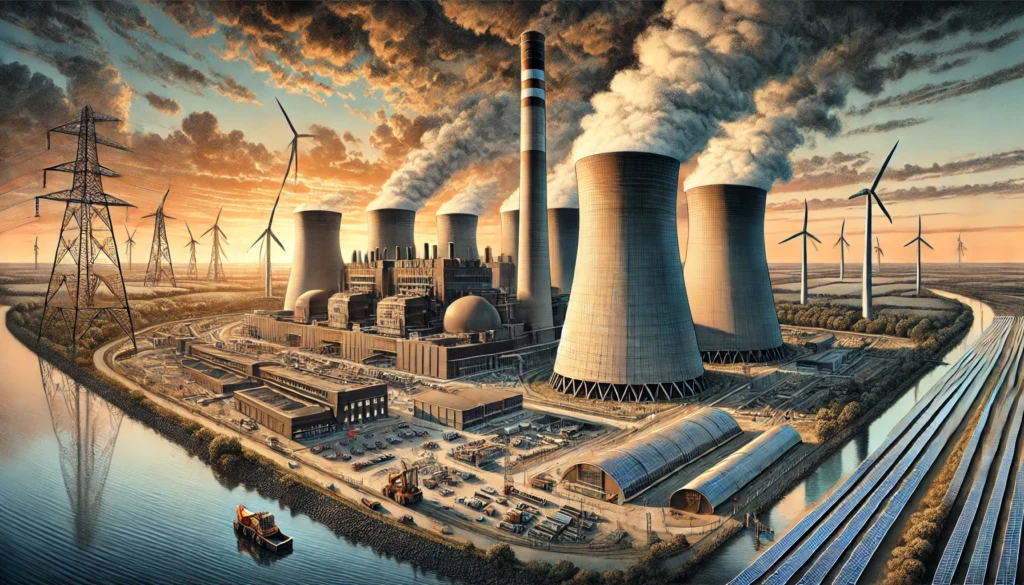Britain’s last coal-fired power station, the Ratcliffe-on-Soar plant, is set to close on Monday, marking the conclusion of 142 years of electricity generated from coal in the nation that ignited the Industrial Revolution. This closure is a significant moment in the country’s energy transition, as it signifies a shift away from fossil fuels.
Located in central England, the Ratcliffe-on-Soar plant will complete its final shift at midnight after more than 50 years of converting coal into energy. The plant’s owner, Uniper, has announced that many of the 170 employees will remain on-site during a two-year decommissioning process. This period will focus on safely dismantling the facility and ensuring that it no longer operates, symbolizing the end of an era.
The UK government has praised this closure as a pivotal step towards its goal of transitioning to renewable energy sources by 2030. Energy Minister Michael Shanks remarked on the significance of the shutdown, stating that it represents the end of a significant chapter in Britain’s energy history. He expressed pride in the contributions of coal workers, who have been vital in supplying power for over 140 years. Shanks added, “The era of coal might be ending, but a new age of good energy jobs for our country is just beginning,” highlighting the potential for job creation in the renewable energy sector.
Ratcliffe-on-Soar is not just a power station; it is an iconic structure with its eight distinctive concrete cooling towers and towering chimney, which stands at 199 meters. Millions of travelers pass by this landmark each year on the M1 highway and by train, making it a familiar sight in the English landscape.
The transition away from coal has been gradual. In 1990, coal accounted for approximately 80 percent of Britain’s electricity generation. However, by 2012, this figure had decreased to 39 percent, and by 2023, it plummeted to a mere 1 percent, according to the National Grid’s statistics. This sharp decline reflects the UK’s broader commitment to reducing carbon emissions and combating climate change.
Currently, more than half of Britain’s electricity is derived from renewable sources, including wind and solar power. The remaining energy comes from a mix of natural gas and nuclear power. This shift towards greener energy sources has been fueled by advances in technology and increasing public awareness of environmental issues.
As the UK embarks on this new chapter, the closure of the Ratcliffe-on-Soar plant stands as a testament to the country’s changing energy landscape. The government’s commitment to renewable energy and its ambitious targets demonstrate a forward-looking approach to energy policy.
In conclusion, the closure of Britain’s last coal-fired power plant not only signifies the end of a longstanding reliance on coal but also embodies a broader transformation in the energy sector. As the nation moves toward a future powered by renewable energy, it seeks to create a sustainable and resilient energy system that aligns with global efforts to tackle climate change. The legacy of coal will undoubtedly remain part of Britain’s industrial history, but the shift to greener alternatives promises new opportunities and challenges for the energy workforce and the economy as a whole.

